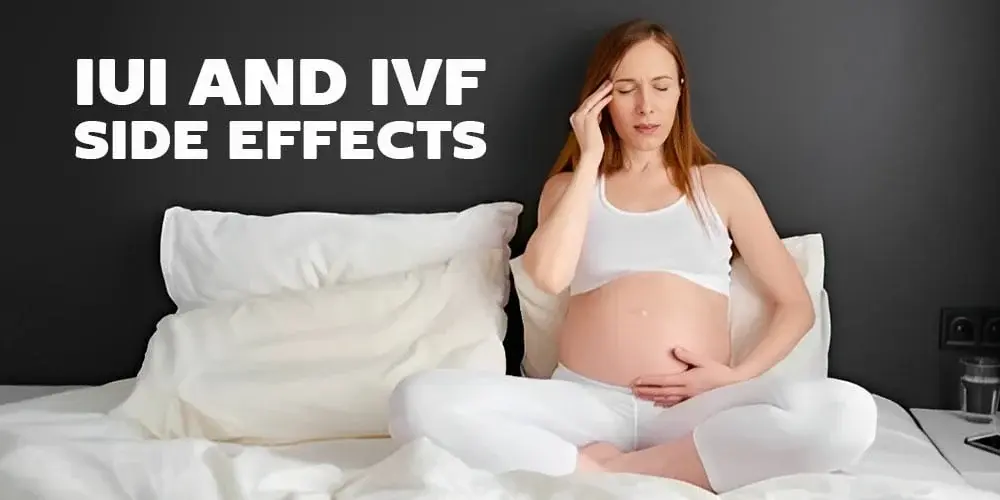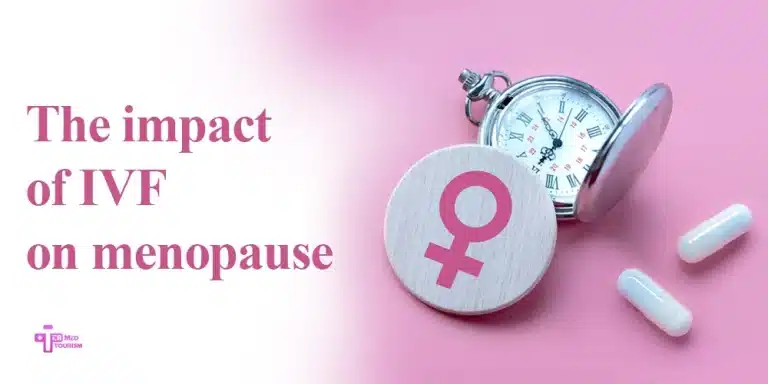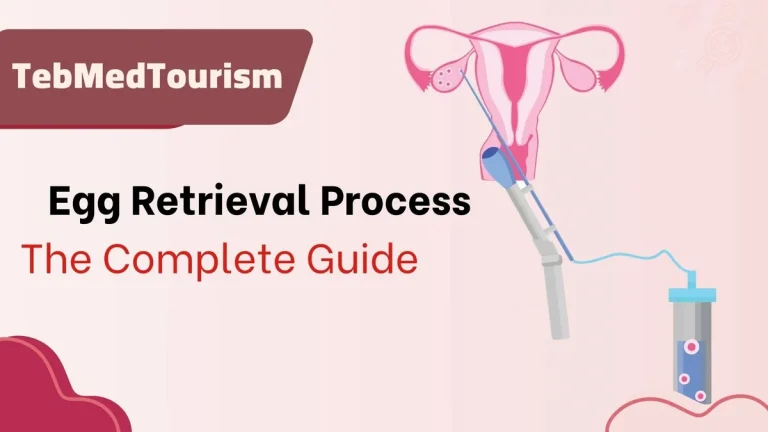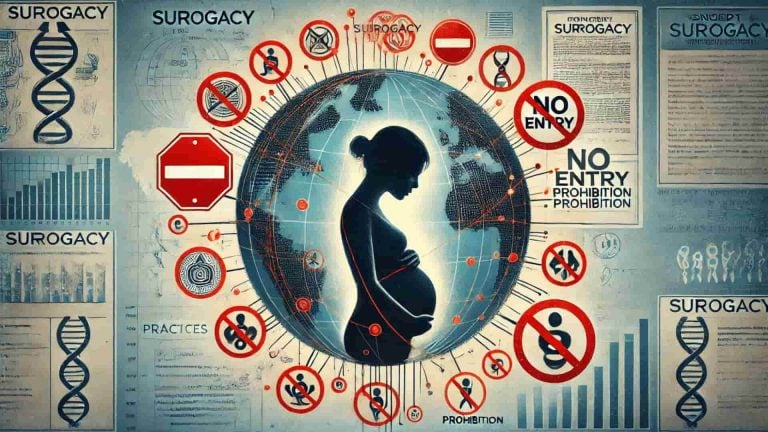IVF or IUI? That is an excellent question. Comparing intrauterine insemination (IUI) and in vitro fertilization (IVF), two of the most popular and successful fertility treatments, should be one of the first steps people take when looking at their options. However, how can you determine whether IVF or IUI is the best course of action for you? What are the ivf effects and iui side effects?
This article is an excellent starting place for anyone wishing to use assisted reproductive technologies (ART) to become pregnant, even though it is always advised to speak with a healthcare professional before making any treatment decisions and prepare for IVF or IUI. Everything you need to know about IUI effects and IVF is covered in it.
We begin with a high-level review of advantages and disadvantages of IVF vs. IUI in addition to going into treatment specifics, important choices within each treatment, success rates, IUI and IVF risks, and potential candidates for each treatment.
What is the difference between IVF and IUI?
To become familiar with IVF effects and IUI side effects, it is necessary to first become familiar with the difference between the two. Couples experiencing infertility issues might be asking what kind of fertility treatments they would qualify for and whether they should get them.
When a couple needs help with fertility, two treatments are frequently performed to help:
- Using a speculum, sperm is inserted straight into the uterus during intrauterine insemination (IUI).
- In vitro fertilization (IVF) is a procedure where eggs are surgically removed and fertilized outside the body using a needle inserted into the back of the vagina.
After completing specific tests, your fertility specialist will provide you with advice regarding possible treatment options based on the results of those testsas well as IUI and IVFdifferences. Your fertility specialist can also estimate your chances of getting pregnant naturally or with each type of therapy.
The treatments of IUI and IVF cycle timeline differ significantly. You can evaluate the IVF effects on the mother and determine which approach might be most effective for you and your spouse by comparing the two options.
Advantages of IVF
Overall, the benefits of this method are much greater than the effects of IVF. Considering the pros and cons of IVF, it holds various advantages such as lowering the risk of inheriting genetic disorders, preserving fertility, and helping individuals and couples overcome infertility. More discretion over starting a family is also offered, including the option to select how many embryos are transferred. In the following, we’ll consider some of the advantages of IVF:
Increased chance of pregnancy
Although individual factors affect success rates, many rounds of IVF generally enhance the overall chances of becoming pregnant. According to a study by BBC, only roughly 33% of women have a child after their first IVF cycle, but by the eighth cycle, this number might rise to 54% to 77%.
Helps infertile couples
For those struggling with different infertility issues, IVF journey has been a ray of hope. IVF offers a route to motherhood, regardless of the cause—blocked fallopian tubes, ovulation problems, low sperm count, or other reproductive difficulties. Every patient’s individual fertility journey is taken into account at TebMedTourism, guaranteeing customized IVF regimens for the highest success rate.
For women with blocked or damaged fallopian tubes, IVF provides the best possibility to produce a child using their own eggs. By avoiding the requirement for healthy fallopian tubes, the treatment offers hope to those who are struggling with this issue. Furthermore, because IVF concentrates on the quality of eggs rather than their quantity, it can be especially effective for elderly individuals or those with a poor ovarian reserve.
Reduced risk of genetic disorders (with PGD)
Preimplantation genetic testing (PGT) of embryos is made possible by IVF and can detect and stop the transfer of embryos with specific genetic abnormalities.
Families with a history of genetic illnesses benefit from this treatment method, and couples can prevent genetic diseases by IVF.
Would you like to learn about IVF in Iran?
Enables pregnancy for women with uterine issues
For women with uterine issues, IVF may be a good way to become pregnant. Selecting viable embryos, optimizing the uterine environment, and even using gestational surrogacy when carrying a pregnancy is not feasible are just a few of the IVF effects and the advantages it offers.
Assists women of advanced age
One of the IVF effects is helping older women get pregnant. Even in women over 30, IVF has been demonstrated to improve a person’s chances of becoming pregnant. IVF is the most effective assisted reproductive technology and has the highest success rate for all types of infertility problems. Over time, the amount and quality of a woman’s eggs decrease due to her natural ageing process. Only the most viable eggs are chosen for IVF.
Use of donor eggs or sperm
Some men and women may require the usage of donated sperm and/or eggs due to infertility issues and medical concerns. By using the science of in vitro fertilization, these people have an increased chance of beginning a new chapter in their lives as parents.
Option to freeze embryos for future use
If you have a sperm donor or are in a committed relationship with a sperm-producing partner, freezing and keeping embryos is a further option through IVF.
Your partner’s or donor’s sperm is combined with your eggs once we have collected them. The fertilized eggs, or embryos, are kept in storage after being frozen. In the UK, embryos can even be kept for up to 55 years.
After undergoing hormone therapy, the embryos can be frozen and reinserted into your womb if you decide to use them later. Your age at the time the embryos were frozen and the overall number of frozen embryos determine your chances of having a future child. There is very little difference between frozen eggs and embryos in terms of the likelihood of a live birth.
Higher success rate compared to natural conception
A number of variables, including your age, ovarian reserve, the cause of your infertility, previous successful pregnancies, etc., affect the IVF success rates.
Dr Rehmer states that most people can anticipate between 50% and 75% success with a single IVF cycle. “Patients who have lower individual success rates might need two or three IVF cycles before they become pregnant successfully.”
Disadvantages of IVF
In the following, we’ll consider some of the disadvantages of IVF:
High cost of treatment
Among the IVF disadvantages, the high cost of IVF treatment may discourage some people from choosing this course of action. But it’s important to keep in mind that there are a number of financing plans, insurance coverage alternatives, and fertility financial assistance programs available to help control the expenses. Additionally, TebMedTourism has a compassionate care program that offers income-based fertility pricing discounts. Our mission is to increase the affordability and accessibility of high-quality fertility care so you can start a family as soon as possible.
No guaranteed success
It is not guaranteed how many IVF cycles a person will need before becoming pregnant, and not all treatments are successful. Considering contemporary science, a fertility specialist could be able to examine the likelihood of success depending on the specific circumstances.
Emotional and psychological stress
Both individuals and their partners may have emotional and psychological difficulties during the IVF process, which can be one of the IVF risks. Mental health can be negatively impacted by the emotional roller coaster of hope, expectation, and uncertainty.
The IVF procedure can cause a variety of feelings in both couples and individuals, ranging from anticipation and enthusiasm to anxiety and despair. In addition to the substantial financial expense, IVF effects, and high stakes might cause stress and more intense emotions.
TebMedTourism acknowledges the need for emotional support and counselling, giving patients the ability to cope with the emotional components of therapy.
Risk of ovarian hyperstimulation syndrome (OHSS)
This condition is defined by ovarian swelling and discomfort. One possible cause is receiving injections of fertility medications, such as human chorionic gonadotropin (HCG), which cause ovulation.
Symptoms may persist for a week or more. Diarrhea, vomiting, bloating, upset stomach, and mild stomach pain are some of these. You may experience symptoms for a few weeks if you become pregnant. A more severe form of ovarian hyperstimulation syndrome can occasionally occur in some patients, causing rapid weight gain and dyspnoea.
- Multiple pregnancy
One of the consequences of IVF is an increased risk of having multiple children; pregnancies with multiples are more likely to result in low birth weight, birth defects, early labour and delivery, high blood pressure, and diabetes than pregnancies with a single child.
- Cancer
Despite some studies investigating potential links between IVF side effects cancer, and the question, can IVF cause cancer? The general agreement is that IVF does not significantly increase the risk of the majority of cancers. There is a slight, potentially increased risk of borderline ovarian cancer.
Let’s learn more about IVF side effects cancer in the following:
- Ovarian Cancer:
Studies show that the increased risk of ovarian cancer, as one of the IVF side effects on mothers undergoing this treatment, is primarily due to the underlying infertility itself, not the procedure. A higher risk of ovarian cancer is linked to infertility and conditions like endometriosis, which can lead to infertility.
- Breast Cancer:
Large-scale studies and meta-analyses have typically found no evidence of a significant increase in the risk of breast cancer caused by IVF. According to the Reproductive Science Centre, more recent research has largely resolved concerns about a potential link that some earlier studies raised, especially in women who had a family history of breast cancer or were undergoing multiple IVF cycles.
Advantages of IUI
Intrauterine insemination (IUI) has two main advantages over in vitro fertilization (IVF): it is less intrusive and costs less. It’s a really simple procedure that often involves minimal medication and few adverse effects. IUI can be a helpful first step for couples who are unable to conceive naturally. It can be used with donor sperm or in cases of mild male infertility.
Let’s examine the benefits in more detail:
Increases chance of pregnancy
Although IUI (intrauterine insemination) pregnancy rates vary, they usually fall between 5% and 20% per cycle. Age, general health, and sperm quality are some of the variables that affect IUI vs. IVF success rates; younger women typically have better odds. Higher cumulative success rates can result from repeated IUI cycles; some sites report over 50% success for women under 40 after six rounds.
Simple and quick procedure
IUI is a rapid and easy reproductive procedure that involves injecting processed sperm straight into the uterus. Anesthesia is not necessary, and the process usually takes only a few minutes and is painless.
Cost-effective fertility treatment
IUI is a more affordable choice for many couples because it is far less expensive than IVF effects, which can be very useful for those who are just beginning their fertility journey or are on a smaller budget.
Minimal recovery time
IUI often has a little recovery time. Most people are able to promptly resume their normal activities following the procedure. The actual treatment takes about five to ten minutes on average, and anesthesia is not necessary. While some women may experience mild spotting or moderate cramping, these symptoms are usually temporary and disappear within a few days.
Requires fewer medications
IUI often requires less medication than IVF. In IUI, sperm are injected directly into the uterus, often with little to no medication to induce ovulation, whereas IVF requires more complex medications for egg collection and embryo development.
Disadvantages of IUI
Let’s examine the disadvantages of IUI in more detail:
Lower success rate than more advanced treatments
IUI success rates are 15% to 20% for each monthly try. Doctors recommend attempting three or four cycles of IUI because of its 40% to 50% cumulative success rate.
According to Dr Rehmer, only 20% of the general population, or one in five couples, become pregnant each month. “We try our best to achieve the same success rates with IUI effects, but many still require IVF.”
May not work for severe infertility issues
Some forms of severe infertility may not respond well to IUI. For couples who have mild to moderate reproductive problems, it’s frequently a good alternative; however, in more severe circumstances, other therapies, such as IVF (in vitro fertilization), might be more suitable.
In summary, severe infertility conditions, as IUI side effects, such as very low sperm count, blocked fallopian tubes, severe endometriosis, or pelvic adhesions typically do not respond to IUI. It is more effective when used for mild male infertility, ovulation disorders, infertility that cannot be explained, or difficulties with cervical factors. Because IVF effects bring a greater success rate and can address several infertility reasons, it is frequently chosen for severe cases. To select the best course of action, speaking with a fertility professional is essential.
Risk of multiple pregnancies
If you take fertility medicine, you may release several eggs. This increases your chances of getting pregnant with twins, triplets, or more. Pregnancy with numerous infants increases the risk of low birth weight and premature labor.
Requires healthy fallopian tubes
Intrauterine insemination (IUI) requires fallopian tubes that are open and healthy. The sperm must naturally reach the egg inside the fallopian tubes for IUI to work. According to Thomson Medical, IUI cannot be used to get pregnant if the fallopian tubes are damaged or blocked since the sperm cannot get to the egg for fertilization.
Emotional stress from repeated attempts
Couples who undergo repeated IUI (intrauterine insemination) cycles may experience severe psychological distress. Strong emotions of sadness, grief, and frustration are frequently triggered with each unsuccessful attempt. Those receiving therapy are more likely to experience anxiety and despair due to the cycle of creating optimism and then receiving unfavourable results, which heightens emotional sensitivity.
This prolonged emotional pressure not only affects the individual but also can cause interpersonal conflict and stress. A couple’s relationship may be tested as they work through the highs and lows of reproductive treatments together. Mental stress can lead to misunderstandings, emotional distance, or even confrontation.
Which one is better: IVF or IUI
In this article, we examined IVF effects and IUI side effects. Despite being fertility treatments, IVF typically has a higher success rate than IUI, which is less expensive and invasive. The best option depends on a variety of individual factors, such as age, preferences, and the type and severity of infertility. Although IUI is usually tried first, especially for mild cases, IVF may be suggested for more complex issues or when IUI is not working.
As a result, since all patients have their own unique conditions, you should get a consultation from the right fertility professionals to go over your medical history and go over a suggested plan of action. Regardless of age, couples are advised to get help as soon as possible because infertility is not unusual.
FAQs
What are the long-term side effects of IVF injections?
Ovarian hyperstimulation syndrome (OHSS), which can result in ovarian swelling, discomfort, and infrequently more serious complications, can be caused by IVF injections. There is insufficient evidence regarding a slight increased risk of borderline ovarian cancer.
What are the emotional side effects of IVF?
Because of the pressure, uncertainty, and repeated cycles involved, IVF frequently results in emotional stress. Emotionally, both individuals and couples are affected by the common emotions of hope, anxiety, and disappointment.
How will IVF make me feel?
Physically, you may experience bloating, mild discomfort, or OHSS symptoms. Emotionally, IVF can bring mixed feelings — hope, anticipation, stress, and sometimes sadness — especially during waiting periods and after unsuccessful attempts.
What is the negative side of IVF?
IVF is expensive and emotionally taxing and does not guarantee success. It also carries medical risks like OHSS and a higher chance of multiple pregnancies, which may lead to complications.
What is a major problem with IVF?
The major problems are its high cost, no guaranteed success, emotional burden, and potential medical risks like OHSS and multiple pregnancies.
What is the negative side of IUI?
IUI has a lower success rate than IVF, may not work for severe infertility, increases the risk of multiple pregnancies if fertility drugs are used, requires healthy fallopian tubes, and can cause emotional distress from repeated failures.












